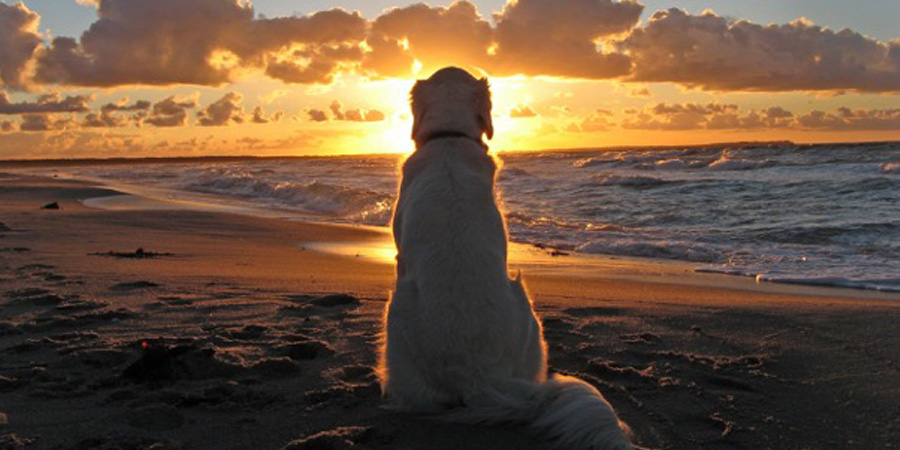
Whether your senior pet crosses the “Rainbow Bridge” naturally, or with a peaceful and compassionate euthanasia at home, there is always the question of aftercare. In the past, there were two choices: burial or cremation.
Soon the purveyors of compassionate home pet hospice and euthanasia will be giving their clients – and other pet parents – a third and more environmentally-friendly option called aquamation.
Pet aquamation is the water-based alternative to conventional pet cremation. Also known as “Alkaline Hydrolysis” or “Water Cremation,” the aquamation process is based on the natural decay that a body undergoes when buried in the ground. The difference is that it takes hours instead of decades or centuries. The process begins when the pet is placed in a cradle in a watertight alkali bath consisting of sodium and potassium, the same salts that cause decay in the soil. Aquamation offers greater than 90% energy savings compared to flame cremation, with 1/10th of the carbon footprint. There are no direct emissions of harmful greenhouse gases or mercury to the atmosphere.
“It’s a gentle, natural, environmentally-sensitive way to manage your companion’s remains,” says Dr. Laurie Brush, founder of Heaven at Home Pet Hospice and the petrepreneur behind bringing aquamation to Grand Rapids. “Many of our clients want to cherish their pet’s memory without affecting the environment.”
The process is “eco” in a second way. It produces a completely sterile solution of amino acids, sugars, nutrients, and salts that are safe to return to the water treatment system or be used as a nourishing fertilizer.
Bone fragments that remain become a white, sand-like material, and these “cremains” are returned to the pet parent. Pet parents may choose a decorative urn and/or have cremains incorporated into silver jewelry or glass-blown artwork to memorialize their companion.
While aquamation might seem like a relatively new and increasingly popular technology as both a human and pet aftercare option, the process itself dates back to the 1880s, when it was patented for livestock management. This modern technology has been in use by universities and the scientific industries for over 25 years.
Body donation programs such as the Mayo Clinic have long used the process, and to date, more than 20 states have legalized aquamation for humans.
The Heaven at Home Aftercare Center is in the process of installing the equipment and training staff. Sample Artisan Glass memorial sculptures are available for viewing here.
